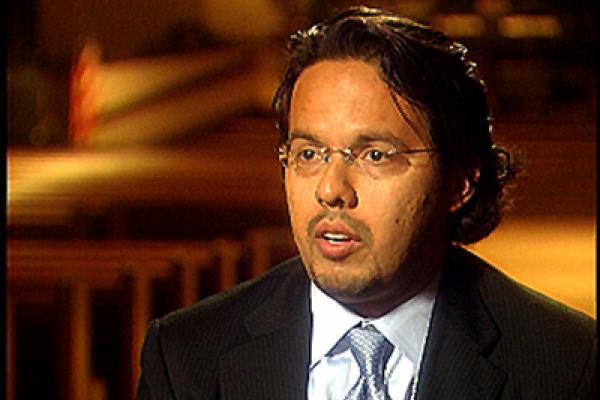Even though the Rev. Samuel Rodriguez had a 3.9 GPA in high school, his teachers kept pushing him to be a car mechanic.
He is Hispanic, said Rodriguez, now president of the National Hispanic Christian Leadership Conference, and his teachers did not believe he could succeed academically.
Rodriguez wants the same bar set for all students, something he believes can come out of the Common Core State Standards. Across-the-board standards could help end the poor education that fuels “our multigenerational poverty, the proliferation of drugs, participation in gangs, teenage pregnancy,” Rodriguez said.
But as schools in 45 states and four U.S. territories implement the standards this fall, some Christians see the heavy hand of government in the state-led goal posts for K-12 students in English and mathematics.
According to the Program for International Student Assessment that measures student achievement in more than 70 countries, the U.S. education system ranked behind 16 other economies in 2009. The U.S. also showed some of the largest gaps between high and low test scores.
Phyllis Schlafly, president of the conservative Eagle Forum, said she fears standardized tests will arise from the Common Core and force all educators — both public and private — to teach things that go against their beliefs.
“I am suspicious that a lot of it will have a lot of liberal propaganda” in informational texts that are grouped with classical literature, she said. “The mechanism of control is the tests.”
The federal government has backed the standards through the Race to the Top initiative, a $4.35 billion competitive grant program meant to spur states toward educational innovation. The program requires states to adopt the Common Core standards to qualify for federal funding.
Lindsey Burke, education policy fellow at the Heritage Foundation, a conservative Washington-based think tank, said the common core is “unprecedented federal intervention” into education.
“You have all of these federal fingerprints on the Common Core, which is why we see it as a federal push to create national standards and tests to define what every child in public schools across the country will learn,” Burke said. “If you just look at an abridged history of federal involvement in education, it’s been growing rapidly over the past few decades. … We have not seen improvements in student outcomes because of that.”
Maureen Van Den Berg, legislative analyst for the American Association of Christian Schools, a conservative group with more than 100,000 students and teachers in its member schools, also opposes the standards. At a recent Common Core panel hosted by the conservative Family Research Council, Van Den Berg said federal involvement undermines parental responsibility for their children’s education.
But Michael Brickman, national policy director at the Thomas B. Fordham Institute, a conservative think tank that supports the standards, said the guidelines have strong real-world application and that opposition to the standards is really opposition to the Obama administration.
“I think that if you look at the criticisms against the Common Core, very few of them have to do with the standards themselves,” Brickman said. “Every state had standards prior to the Common Core. It was always the case that instruction and pedagogy and curriculum were all local level decisions … and that will not change with the Common Core.”
Video courtesy TheHuntInstitute via YouTube
The Common Core does not include a curriculum, although curricula selected by participating states must help students achieve goals such as, for example, being able to compare and contrast themes in literature by fourth grade and being able to perform operations with numbers in scientific notation by eighth grade.
Three-quarters (77 percent) of teachers who teach math or English language arts believe the standards will have a positive impact on critical thinking and reasoning skills, according to a study done by the Bill & Melinda Gates Foundation. Only 1 percent believe it will have a negative impact.
“As a Christian, as a pastor, I want children to prosper,” said Rodriguez, speaking of how the current education system fails minority students. “If we don’t have a comprehensive Common Core strategy across the nation, we’re going to continue to perpetuate this endless cycle of poverty.”
The new standards are an improvement over previous state standards, said Karen Swallow Prior, a professor of English at Liberty University who has researched and written about the English standards.
“As a Christian and an English professor, I believe that our students are not being effectively taught the skills of deep reading,” said Prior. “As a Christian, those needs take on an even deeper resonance, because we are … a word-centered faith, so the ability to read closely and read well is essential to the Christian faith.”
Katherine Burgess writes for Religion News Service. Via RNS.
Got something to say about what you're reading? We value your feedback!
